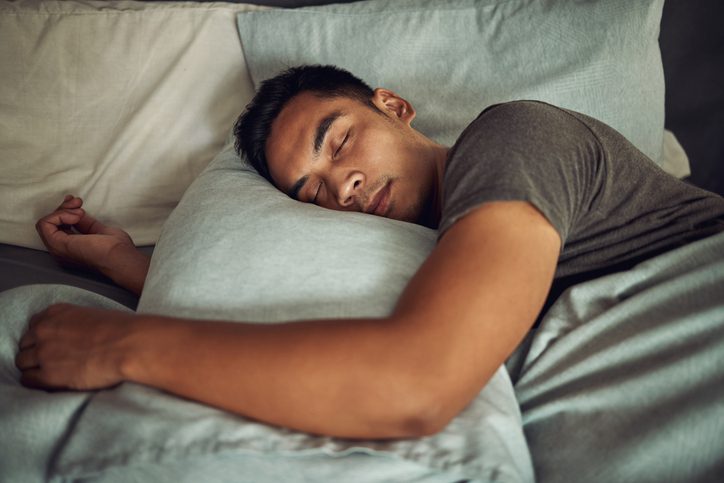You may know that sleep is crucial for physical health and cognitive function. But did you know that sleep also plays an equally vital role in mental health?
Getting high-quality sleep consistently is one of the most effective ways to protect and improve your mental health. The National Sleep Foundation reports that adults should aim to get 7-9 hours of quality sleep per night, yet most people fail to get this. This can be due to hectic schedules, stress, poor sleep habits, or an undiagnosed sleep disorder. It can also be due to a mental health disorder, like anxiety or obsessive-compulsive disorder. In this way, sleep and mental health can impact each other, sometimes creating a vicious cycle that can be difficult to break.
Research shows that chronic sleep deprivation and poor sleep quality have serious consequences for mental health. Over time, insufficient sleep can directly contribute to or exacerbate various mental health issues, including:
Depression
Those with depression often experience sleep disturbances like insomnia. Sleep deprivation can trigger or worsen depression symptoms in those not previously depressed. Poor sleep decreases coping ability, emotion regulation, cognitive function, and motivation levels – all of which feed into depressive states.
Anxiety Disorders
Much like depression, anxiety disorders and poor sleep share a connection. Inadequate sleep makes it harder to control worry and negative thought patterns – both hallmarks of anxiety disorders. And excessive worry and anxious thoughts often lead directly to sleep loss.
Bipolar Disorder
A study in Psychiatric Times reports that up to 70% of those with bipolar disorder experience chronic insomnia and irregular sleep-wake patterns. This disturbed sleep can trigger mania, worsen depression during bipolar episodes, and make it much harder to achieve symptom stability.
Suicide Risk
Alarmingly, studies show that insomnia and nightmares increase the risk of suicidal thoughts and behaviors, especially in those with existing mental health conditions like depression or PTSD. Lack of sleep can worsen feelings of hopelessness, impulsivity, and emotional distress – all factors linked to suicide risk.
In addition to worsening specific mental health disorders, chronic sleep deprivation in itself has been associated with increased stress, irritability, mood swings, anger, emotional dysregulation, impaired problem-solving abilities, and diminished quality of life.
How Quality Sleep Promotes Mental Health
There are many mental health benefits that arise from good, consistent sleep. For example:
- Getting sufficient sleep at night leaves you feeling more positive, energetic, motivated, focused, and capable of handling stress. You’ll experience better emotional regulation and fewer mood swings.
- During sleep, your brain processes experiences, knowledge, and emotions from the prior day. Well-rested people have peak attention spans, quicker cognitive processing speeds, and stronger working memory capacity.
- Quality sleep boosts emotional intelligence and perceptiveness to social cues. This helps you better defuse and handle stressful interpersonal situations.
- During the REM sleep stage, your brain flexibly combines ideas and memories in new ways, cultivating creativity and innovative thinking. Sleep also facilitates step-by-step reasoning and solution generation.
- Sleep allows the body to repair cells, regulate metabolism, control appetite, and stabilize physiological processes. These physical benefits facilitate higher energy levels, immune function, and overall well-being – all factors that impact mental health.
- Sleep regulates the levels of hormones like serotonin, dopamine, cortisol, and oxytocin. Optimized hormone production improves mood, stress resilience, social behavior, and mental clarity.
Tips for Getting Better Sleep
Here are some tips to improve your sleep:
- Stick to a regular sleep schedule (even on weekends)
- Develop a relaxing pre-bed routine to put your mind and body at ease
- Make your sleep environment cool, dark, and comfortable
- Avoid screens, caffeine, and large meals in the 2 hours before bedtime
- Practice relaxation techniques like deep breathing, meditation, or gentle yoga
- Get regular exercise and exposure to daylight, but not too close to bedtime
- Keep stimulants like coffee, alcohol, and nicotine to a minimum
- Address underlying issues like sleep apnea, restless leg syndrome, or chronic pain
Small adjustments to your sleep routine and environment can yield major improvements in sleep quality and all the mental health benefits that come with it. Treat sleep as a necessity.
Don’t underestimate the importance of good sleep. Make adequate rest a top priority, give it the time and attention it deserves, and embrace sleep as an essential pillar of your mental health and overall wellness.
Are you or a loved one struggling with a mental health condition, such as anxiety or depression, that is interfering with sleep? At Peak Behavioral Health in Santa Teresa, New Mexico, we can help. We offer various treatment options that can improve your overall mental health. To learn more, please contact us today.





